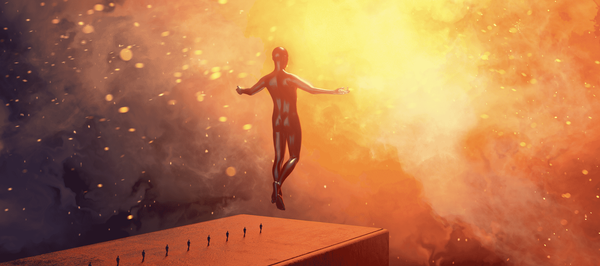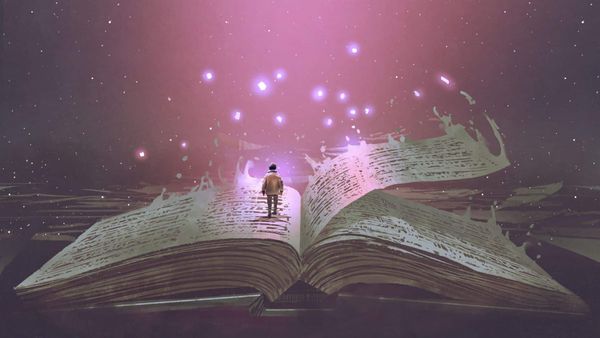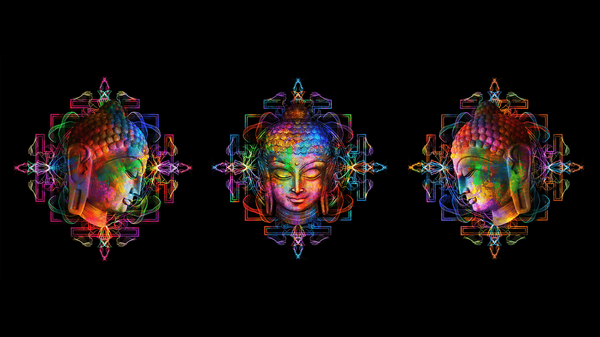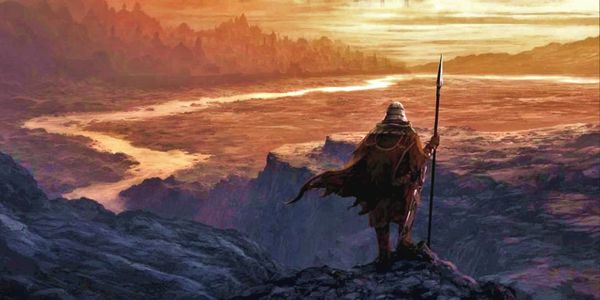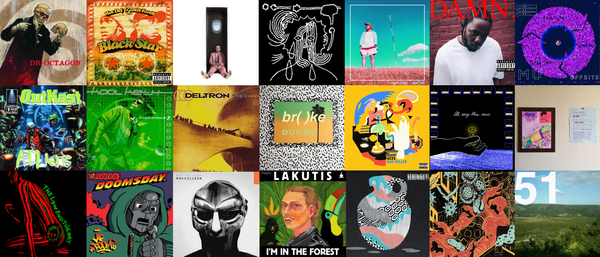Jordan Bates • • 4 min read
Are You the God of Your Life? — You Will Go Mad Trying to Solve the Paradox of This Comic
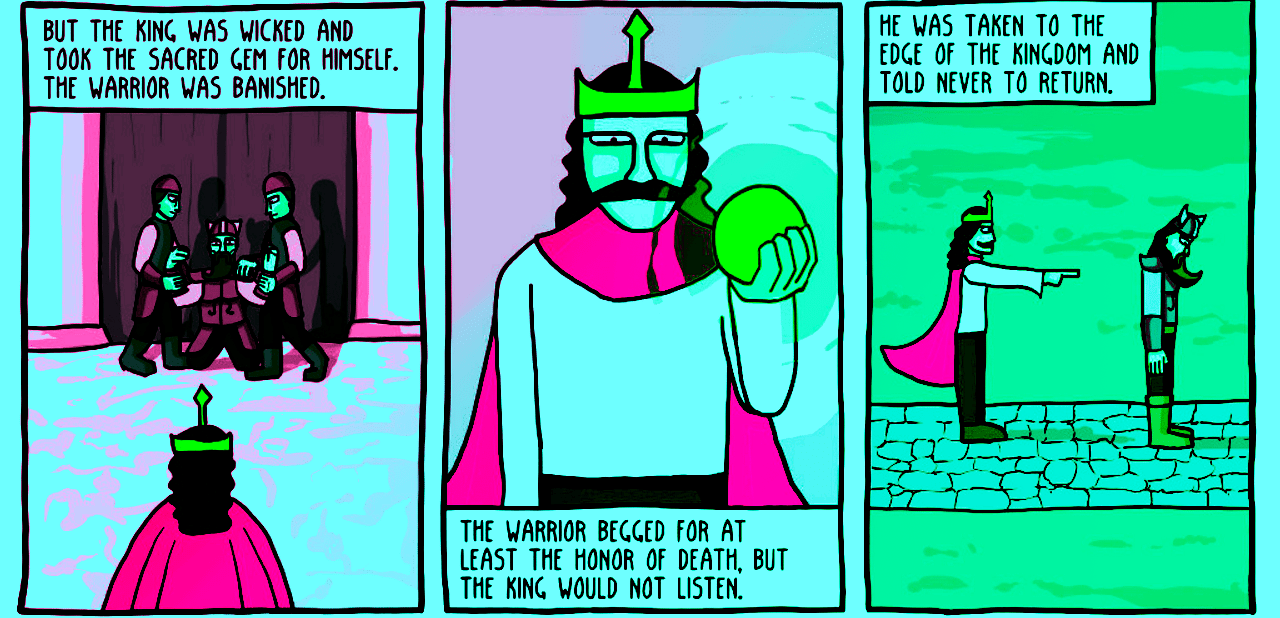
Are you the god of your own life? Are you free to do whatever you please in this world?
Or is there some force — fate, the gods, the Tao — that has predetermined the course you will take in this universe?
This is one of the oldest philosophical questions — one which has for centuries tantalized and tormented everyone from top philosophers to stoned undergraduates.
The comic below from Existential Comics is in part a commentary on this age-old question. It highlights the impossibility of ever truly knowing whether or not we have free will, and it even hints at the mind-pretzeling possibility that we could possess free will and be the pawns of destiny (philosophical compatibilism).
And just when you thought you couldn’t handle anymore paradoxes, it rounds things out by suggesting that the answer to the question of free will might be far less important than what we believe the answer to be.
I’ll stop there and let you soak in this doozy of a comic. You might want to grab some napkins, in the event that your eyes roll back into your skull and you start foaming at the mouth from an overdose of paradox.
The Long Walk: A Mind-Pretzeling Comic
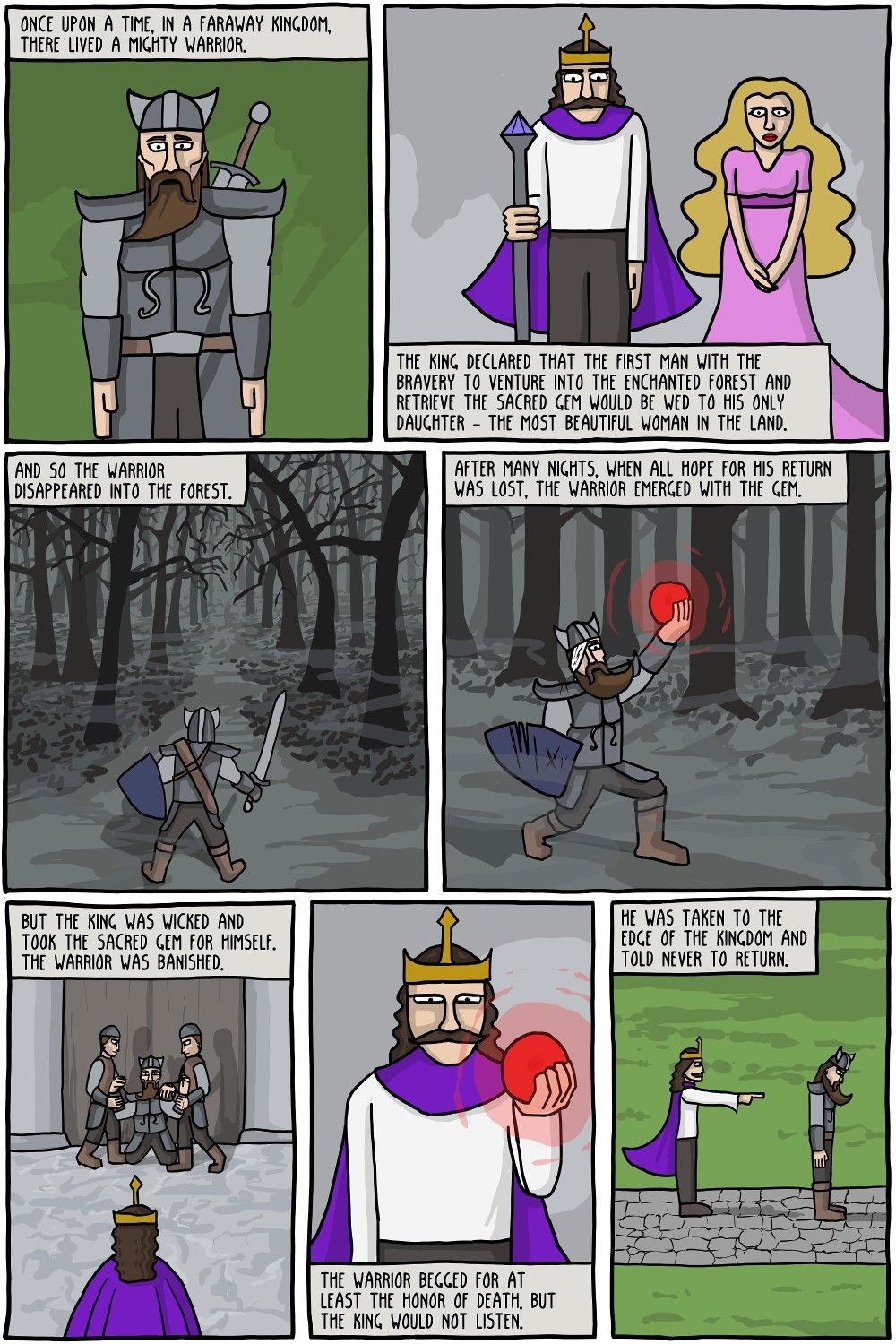
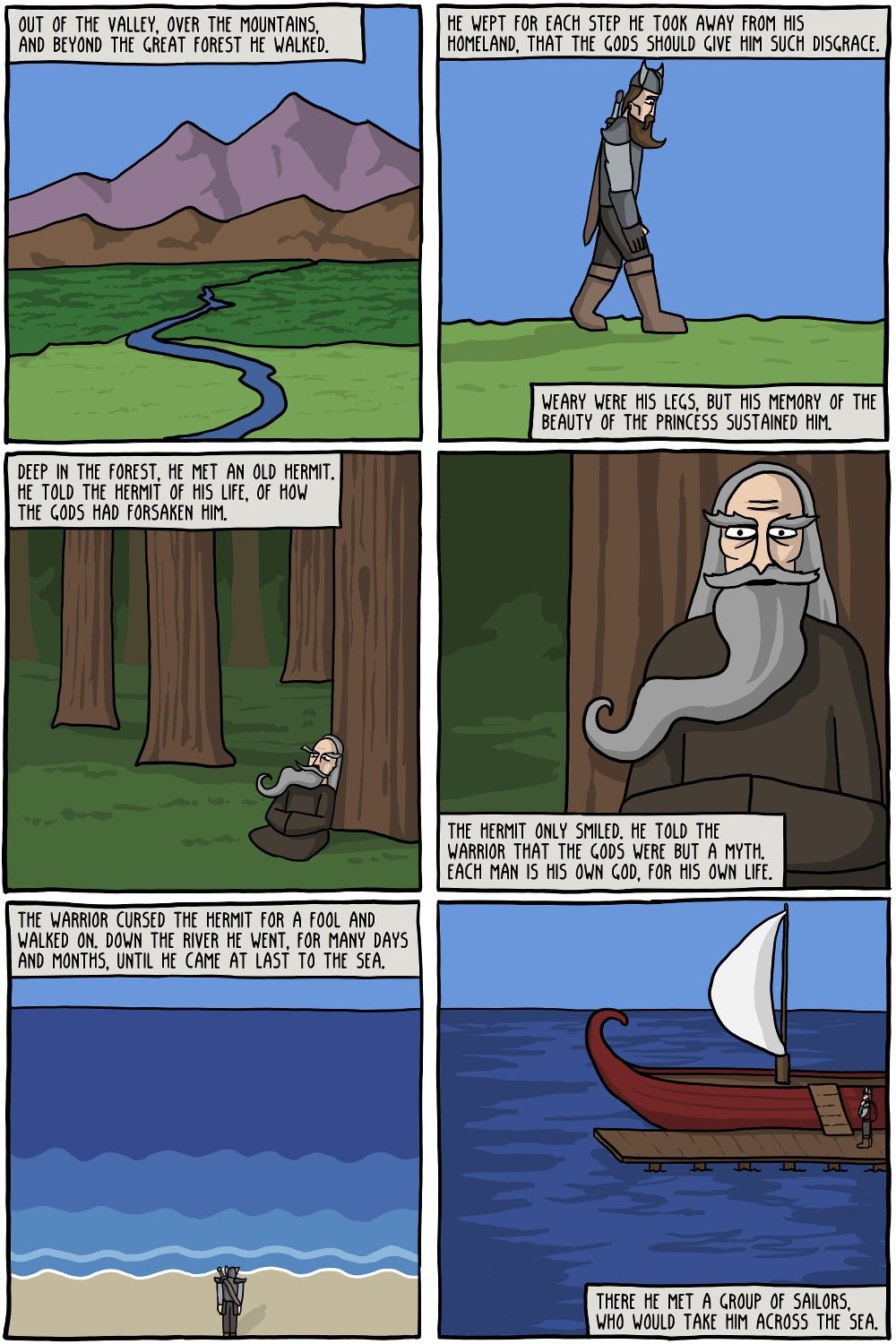
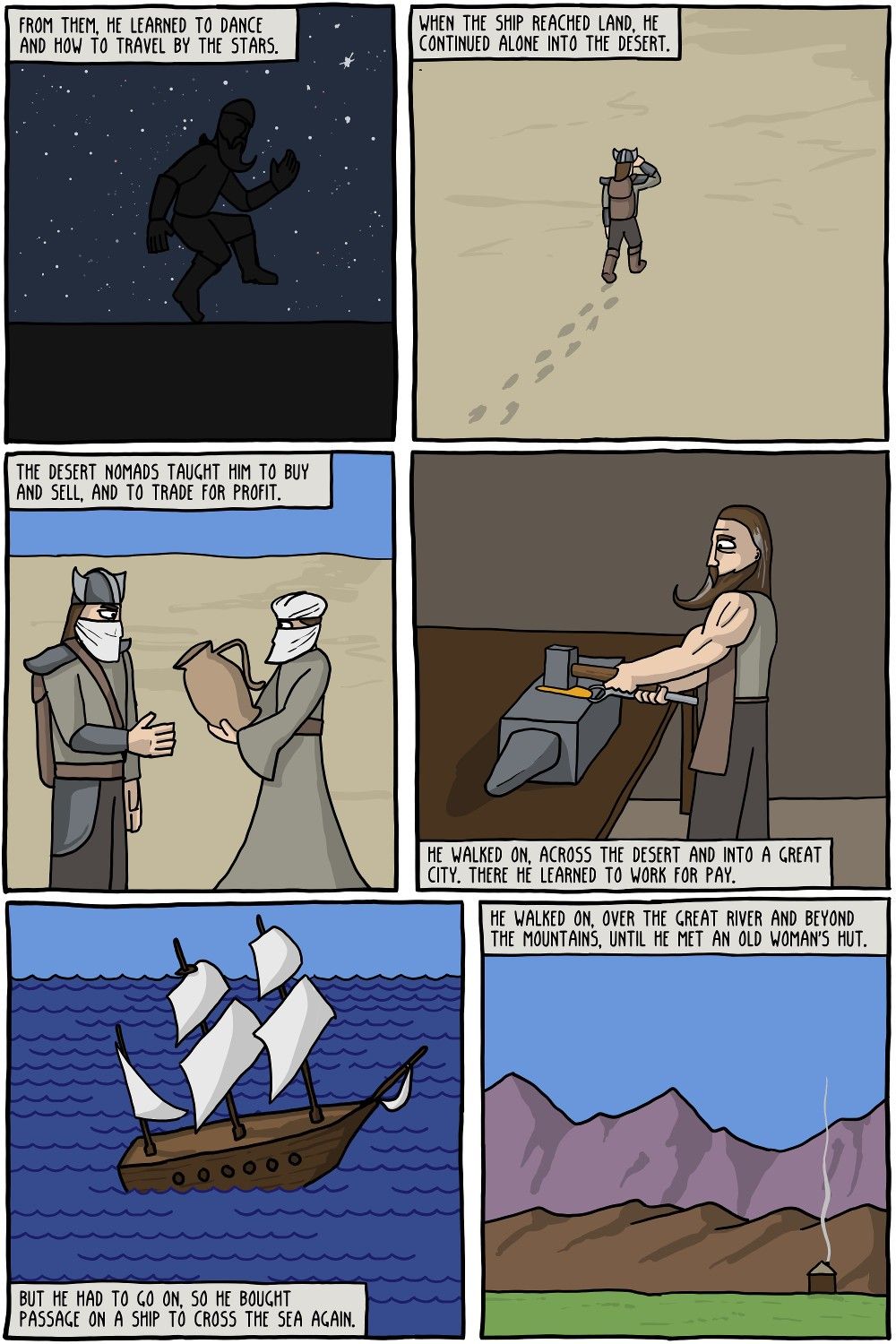
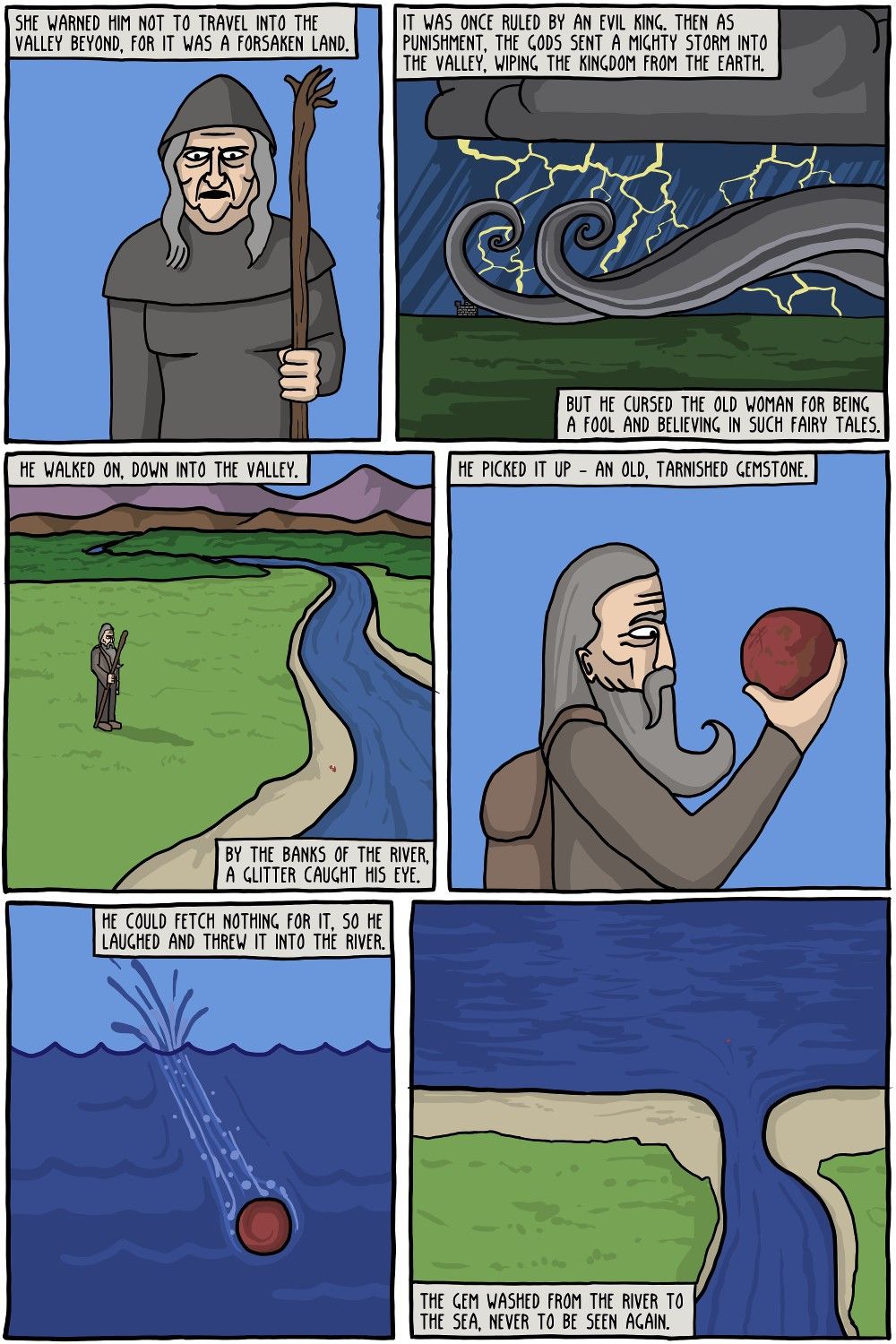
Final Thoughts
I told you that shit was wild, didn’t I? We’re left to decide for ourselves whether the hero’s full-circle journey was predestined by the gods, or whether he was his own god all along.
The irony, of course, is that when he believes he is at the liberty of the gods, he experiences himself as a helpless victim of a shitty destiny. Then, over time, as he comes to see himself as his own god, he seems to determine his own values and to become the master of his fate.
Read this: 21st-Century Sisyphus: Brilliant Comic Asks if Your Life is Meaningless
At the end, he casts the gemstone — a symbol of everything that was once precious to him — into the river, signifying the fact that he has become an entirely different person. What was once treasure has become rubbish. This action of casting aside the gemstone is a profound symbol of the idea that ultimately, the hero’s internal narrative and belief system shape his experience of reality much more than any objective truths, facts, or events. Even if the gods willed that he should come full circle to re-discover the gemstone, he experiences himself as a free agent discovering an old rock and determining for himself that it is not valuable. The comic plays with this maddening paradox and hints at the possibility that the hero is somehow simultaneously determined and free.
You may have also noticed that the structure of the story in the comic bears some resemblance to the classic Hero’s Journey. In the classic Hero’s Journey, though, the hero must return to his home to use the knowledge he has gained on his journey for the betterment of his community. In the comic, the hero indeed returns home, but he doesn’t even realize he’s returned to where he started, and he regards his past home as little more than a worthless ruin. This nihilistic subversion of the classic Hero’s Journey seems to be a critique of the idea that our lives can be neatly traced or contained within any supposedly universal maps or models. This critique seems to be a fitting accompaniment to the comic’s apparent rejection of hard determinism, as the Hero’s Journey is a fairly deterministic model of human transformation.
Read this: Sublime Death: A Philosophy Comic That Will Chill You to the Core
Ultimately, there is a lot going on in this comic, and I’m sure I’ve overlooked certain aspects in my commentary. I’d love to hear other interpretations, so please do chime in below in the comments to let us know what you think.
If you appreciated this . . .
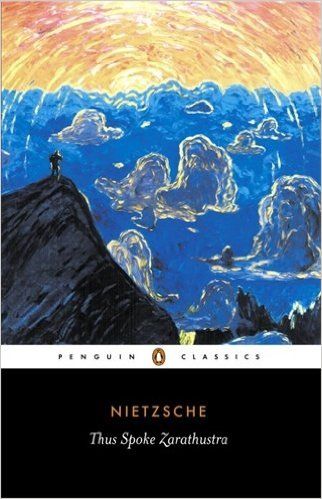
We recommend reading Thus Spoke Zarathustra: A Book for Everyone and No One by Friedrich Nietzsche. In this classic and enormously influential novel, Nietzsche weaves a tale of a prophet named Zarathustra who descends from the mountains to tell humanity that God has died in the hearts of Western people and is no longer a viable source of meaning. Instead, Zarathustra insists that human beings must become their own gods and create their own meaning in life by willing their own values. “With blazing intensity and poetic brilliance, Nietzsche argues that the meaning of existence is not to be found in religious pieties or meek submission to authority, but in an all-powerful life force: passionate, chaotic and free.”

Jordan Bates
Jordan Bates is a lover of God, father, leadership coach, heart healer, writer, artist, and long-time co-creator of HighExistence. — www.jordanbates.life

